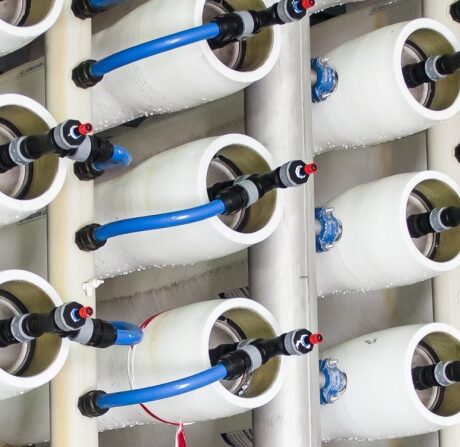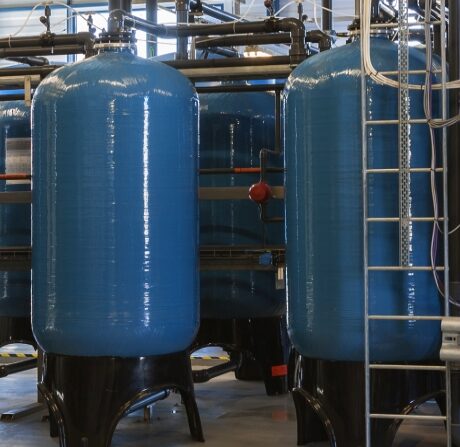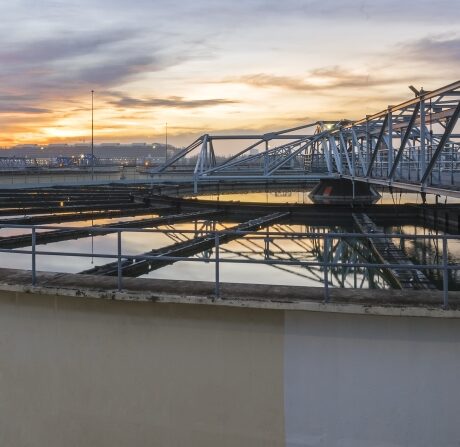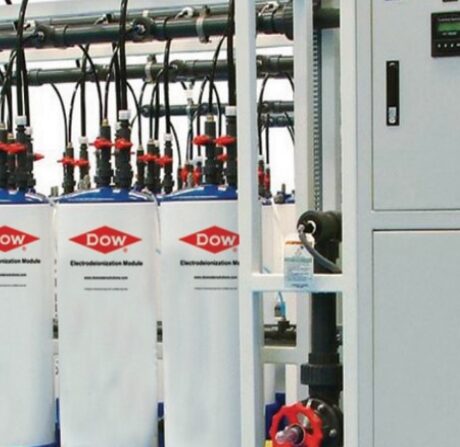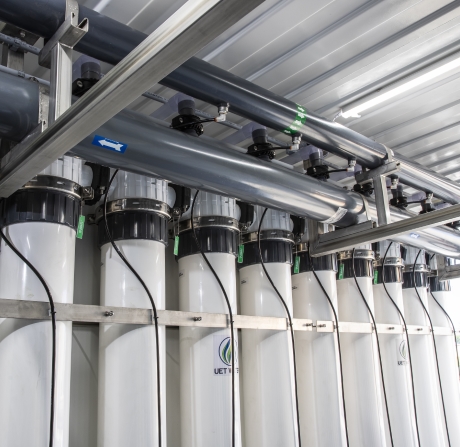
Ultrafiltration (UF) is a type of membrane filtration in which forces like pressure or concentration gradients lead to a separation through a semipermeable membrane. UF has the ability to purify, separate, and concentrate target macromolecules in continuous systems. UF does this by pressurizing the solution flow. The solvent and other dissolved components that pass through the membrane are known as permeate. The components that do not pass through are known as retentate. This separation process is used in industry and research for purifying and concentrating macromolecular solutions, especially protein solutions.
Industries such as chemical and pharmaceutical manufacturing, food and beverage processing, and waste water treatment, employ ultrafiltration in order to recycle flow or add value to later products.
UF can be used to produce potable water by removing particulates and macromolecules from raw water. Ultrafiltration processes have the following benefits:
-
Chemicals are not required
-
Plant size is compact
-
Product quality is constant
-
90-100% pathogen removal
Applications
-
Wastewater Treatment
-
Power Plant Water Processing
-
Municipal Drinking Water
-
Reuse of Wastewater
-
RO Pretreatment of Seawater

